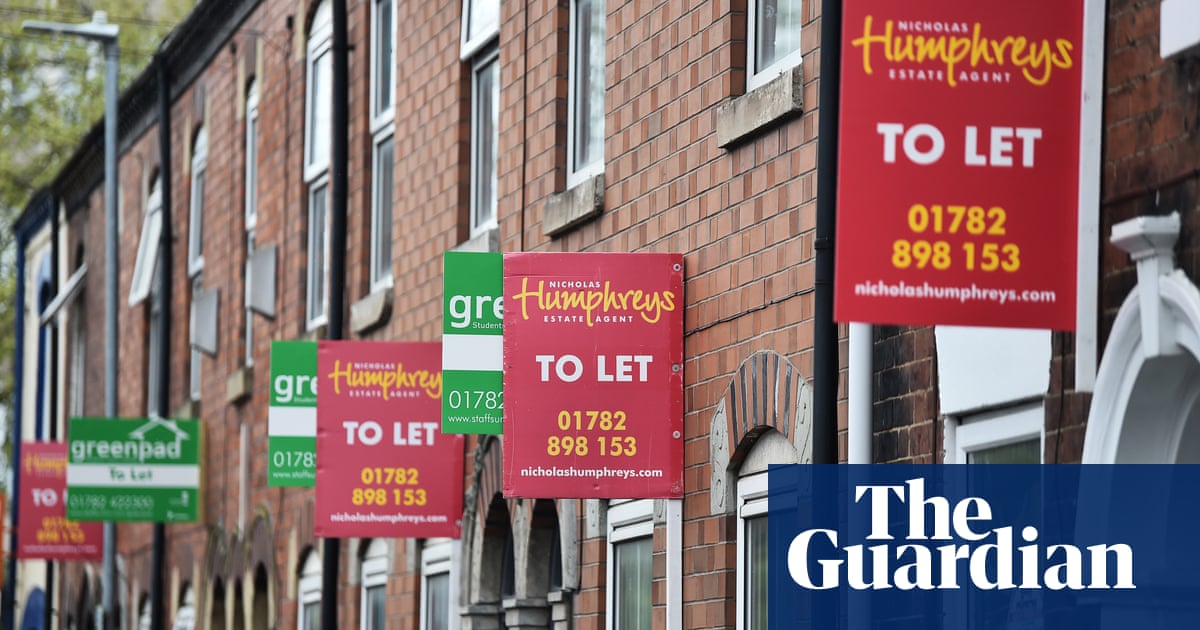
About 700,000 renters are estimated to have been served with “no-fault” eviction notices since the start of the pandemic, despite a government promise to scrap the practice.
The estimate is based on polling of a cross-section of private renters and comes two years to the day that the government announced “private landlords will no longer be able to evict tenants from their homes at short notice and without good reason”.
But the so-called section 21 eviction notices are still in use and ministers are now facing a new push to deliver on their promise from a new coalition for reform of renters’ rights, which includes the charities Generation Rent, Crisis and Shelter, as well as Citizens Advice and the Joseph Rowntree Foundation.
The renters’ reform bill, which promised to abolish no-fault evictions, was announced in the last Queen’s speech in December 2019 but has not yet been delivered.
Of private renters who responded to a Survation survey, 8% had received a section 21 notice from their landlord since March 2020, which would represent 694,000 private renters across England. A further 32% were concerned they would be asked to move out this year.
Gemma Marshall, 38, married with two children age six and nine, who has faced two no-fault evictions in the last two years, said that the threat of the orders creates a sense of vulnerability, makes it hard to settle and is destabilising for her children.
“Having to break the news to the children when they are starting to feel it is home is really hard,” she said. “It has an impact on your mental health and wellbeing. I have spent countless hours worrying.”
She lives in Devon and said finding affordable places to rent was becoming harder as more city-dwellers consider moving to the countryside as the pandemic eases.
Polly Neate, the chief executive of Shelter, said private renters have “had a bad deal for too long – living at the mercy of a broken and unfair system”.
“As we emerge from this crisis, Boris Johnson must keep his promise to bring the bill forward and give every renter the security and rights they need,” she said.
Sue James, the chair of the Renters’ Reform Coalition, said: “Private renters face high rents, poor living conditions and perpetual instability. This causes needless disruption to people’s lives: their finances, work, health and their children’s education. Renters need certainty to enable them to put down roots in communities and create real homes in rented properties.”
Meanwhile, countryside campaigners have welcomed a quiet U-turn by the government on one aspect of affordable housing policy. Ministers have signalled that they will not raise the minimum threshold at which developers of new housing estates are required to provide affordable units from 10 to 40 or 50 homes, as originally proposed in draft planning reforms.
Tom Fyans, the deputy chief executive of CPRE, said: “Rural communities are facing unprecedented pressure when it comes to housing – rising house prices and low rates of affordable housebuilding are only making this situation more precarious. So, it is a massive relief and hugely welcome that the government has decided to drop its proposal to massively loosen the duty for developers to build affordable homes.”
The Ministry of Housing, Communities and Local Government has been contacted for comment.












